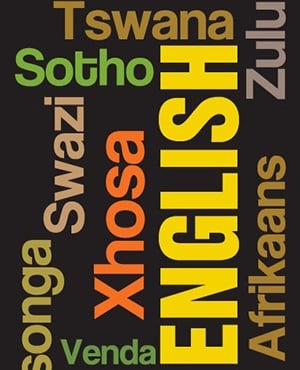
The denigration of African language and culture is the ugly stamp left behind by colonialism, writes David Maahlamela
Colonialism is one of the most influential forces in modern times and has many long-lasting effects that will never truly go away.
One of the areas where the effects of colonialism are most permanent is language.
Unfortunately, it is very difficult to undo the extinction of a language, and it is hard work to keep dying languages alive, especially where speakers of such languages have deserted them.
Sadly, this is one area where some critics of the Pan South African Language Board (PanSALB) fail to acknowledge and recognise that Western colonialism has damaged and erased languages across the world.
In Africa, Latin America, Ireland and many other places, people have had their culture stripped from them in their own land.
It is not an overstatement to say that the never-ending linguistic genocide and hostilities fought through politics are reflective of this reality as certain variants and dialects have been favoured and, in some instances, new languages formed.
A case in point in South Africa is the use of Sepedi versus Sesotho sa Leboa, a challenge whose roots can be traced as far back as the colonial era.
The current constitutional dispute is rooted in what is deemed a translational error of 1994, whereby the interim Constitution had named Sesotho sa Leboa an official language, while the term Sepedi was applied in the Zulu and English versions of the document.
The latter version was the one signed by then president Nelson Mandela and was therefore regarded as the official Constitution, with Sepedi deemed an official language (1996 Constitution, chapter 1).
The issue was brought to Parliament’s attention in 2007, leading to public hearings being held in 2010 and 2011 before the Constitutional Review Committee (Parliamentary Monitoring Group, 2011).
Since then, no tangible progress has been achieved.
Instead, the matter has been neglected without the realisation that it detrimentally impacts the growth and development of the language.
South Africa is blessed with more than 30 languages, of which 11 are official.
It is not rocket science to note that the decision to settle for 11 languages was largely influenced by the languages that were spoken in the former homelands, which were recognised by the apartheid government.
At least the recognition gives us the opportunity to learn about other cultures, and to inculcate the values of tolerance and respect in our children.
However, the fact that not all South African languages have been given official status in most cases does not auger well among those speakers of the languages that were left out.
For instance, languages such as Sepulana, isiBhaca, Khelovedu and N?ng/N|uu, to name but a few, are not recognised as official languages in South Africa, but are national and regional languages that enjoy the protection of the supreme law of the country – the Constitution.
This has created endless linguistic disputes that some community members blame on PanSALB.
Unfortunately, this position is driven by a misunderstanding and/or an inadequate awareness of the facts.
Too often, ill-informed rhetoric has led to ungovernable emotional excess that obfuscates solid evidence regarding the real problems.
In South Africa, a language does not have to be official for it to enjoy protection.
The one good thing that came with the fall of apartheid is our Constitution – it guarantees and protects all languages spoken in South Africa as long as the speakers of such languages continue to use them in schools or for historical, cultural and other reasons.
Let us not act out of fear and misunderstanding, but rather according of the values of inclusion, diversity and regard for all that makes our country great.
The path forward for Sepulana, isiBhaca and other languages is to ensure that they are standardised.
This is the only way for them to be offered as languages of education.
Otherwise, the situation in which children speaking Sepulana and isiBhaca are made to leave their languages at the gates of institutions of learning will continue.
As a matter of fact, PanSALB does not have the power to grant official status to any language.
Such powers rest with Parliament through the Constitutional Review Committee.
However, PanSALB could conduct research, make recommendations to state institutions on matters related to languages and investigate language violations.
As we enter Heritage Month, we must take and give from each other on the basis of equality, otherwise certain languages will remain dominant and privileged.
Policies will need to be put in place that will take us beyond pious proclamations and pompous declarations of intent so that we can all shout from our cathedrals and temples of development that, indeed, we have come to terms with the constitutional provision of 11 official languages and the protection of all other languages spoken in the country, including Sepulana.
Maahlamela is the chairperson of PanSALB




 Publications
Publications
 Partners
Partners








